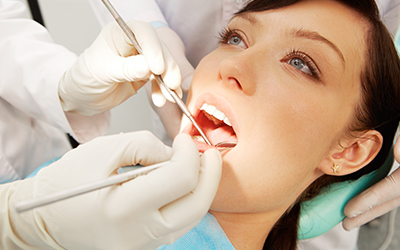Image Credit:
File ID 16537735 | © Pressmaster | Dreamstime.com

Imagine plaque as a sticky film that slowly creeps over your teeth like a layer of dust on a forgotten shelf. Just like dust, plaque can build up unnoticed, gradually causing damage if left untreated. The problem with plaque is that it’s not always visible until it’s already causing damage. Thus, made up of bacteria, food particles, and saliva, plaque can lead to cavities, gingivitis, and other dental problems if left unchecked.
Plaque itself is colorless, but it can cause tooth discoloration as food particles stick to it.
This tacky layer gives your teeth a "fuzzy" sensation. If they seem like they’re wrapped in tiny sweaters when you run your tongue over them, that’s a clear sign of plaque buildup.
Apart from a sticky or fuzzy sensation on your teeth, two common signs of dental plaque include:
Plaque forms when the bacteria in your mouth feed on sugars and starches from the food you eat. They produce acids that stick to your teeth, creating that sticky film. If not removed with proper brushing and flossing, plaque hardens into “Tartar.” Tartar is also known as “Dental calculus.” At this stage, brushing and flossing won’t be enough to get rid of it. Thus, only a dentist or hygienist can remove it through professional cleaning.
For those who have recently had dental implants in Portsmouth or are considering implants near Portsmouth, plaque management becomes even more crucial. Plaque buildup can compromise the health of your gums and even affect the stability of tooth implants in Portsmouth. That’s why it’s essential to brush twice a day, floss regularly, and use mouthwash to keep plaque at bay.
To prevent plaque, aim to reduce sugary foods, drink plenty of water, and stay consistent with your dental hygiene routine. Gentle brushing around the implant site is key for those with dental implants, as aggressive brushing could damage the area.
To sum up, plaque might seem harmless, but it can lead to serious oral health issues. By staying on top of your oral care routine, you can keep plaque in check and enjoy a healthier smile.
Is plaque secretly harming your smile? At Coastal Periodontics, we know how important it is to prevent plaque buildup for a healthy smile and long-lasting dental treatments, like implants. Our periodontal specialist in Portsmouth, NH, offers personalized care to help you maintain excellent oral hygiene and protect your teeth and gums. If you're concerned about plaque or other oral health issues, contact us today.